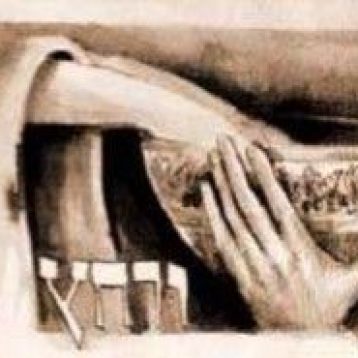Could it be true that at one stage or another we have all been guilty of hypocrisy? It’s hard to get through life without finding that our actions and our words don’t quite marry up. We know the tell tale signs all too well. We go to the polling booth to vote, or commit our opinions to ‘Facebook’, and experience a slight discomfort. It’s a discomfort we know of old, but have become very good at ignoring. It’s the discomfort that comes of saying one thing but doing another. It’s the discomfort that comes of teaching something but not practising it. The discomfort is telling us that we might be guilty of hypocrisy. In today’s gospel Jesus warns us against religious hypocrisy. Is there a danger that we have all become very good at saying the right things, but of doing something else?
Today we see Jesus voicing exasperation with rules that had become burdensome, unimportant and hypocritical. In biblical days there were a great many traditions and rules on the proper way to prepare food. There were rituals regarding the washing of hands, pots, and bowls. The Pharisees challenge Jesus on allowing his disciples to eat with dirty hands, but Jesus shocks the Pharisees by suggesting that their man made laws are irrelevant. Without actually throwing the rulebook out of the window, he suggests that we concern ourselves with matters of greater importance. Outer appearances are all well and good, but what lies beneath? What really matters is what comes from our hearts. “Nothing that enters one from outside can defile that person,” he tells them, “but the things that come out from within are what defile.”
Key to guarding against hypocrisy is to remember before condemning others, that our own hands mightn’t be as clean as we think. The person who goes to church on Sunday and appears to be doing all the right things, is not necessarily a good person if he or she doesn’t do good deeds during the rest of the week. Similarly, the person who breaks man made laws is not necessarily a bad person. Jesus tells us to use what is in our hearts when it comes to moral yard sticks, and not the rules made by others. What really matters is how well we listen to what is in our hearts, and how well we act upon it.
